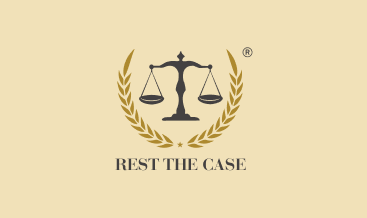Books
PAX INDICA: INDIA AND THE WORLD IN THE 21st CENTURY - Shashi Tharoor

The Foreign Ministry also is known as the Ministry of External Affairs (India) is the agency of the government that is accountable and responsible for the conduct of external and foreign relations of India with other countries. With the world's fourth-largest armed force, third-largest military expenditure, third-largest economy, and the fifth-largest economy by GDP rates in terms of purchasing power India is a very prominent nuclear power, a regional power, and an emerging potentially a global power.
Being a member of the Commonwealth Nations, India has maintained relationships with other countries. After its independence in 1947, India is classified as an industrialized country that has cultivated an extensively great network of foreign relations with other countries and states.
Pax Indica: India and the World in the 21st Century is a work of non-fiction authored and written by Shashi Tharoor as it talks about the foreign policy of India that is an account of India’s international relations by the expert in this field.
Indian diplomacy is like love-making relations of an elephant because it is accompanied by much bellowing, conducted at a very high level, and the results are unknown for two years. In this lively, insightful, and informative work, the award-winning author Mr Shashi Tharoor, the parliamentarian has demonstrated and elucidated as to how the Indian diplomacy has become spry since then and where it should focus in the world of the 21st century.
Shashi Tharoor has accurately tried to demonstrate the Indian diplomacy that has come of age and foresees the need to focus on the new era. He has surveyed the major international relationships of India in detail, evoked the country’s power, and has penned his thoughts on the ‘grand strategy’ for the nation, arguing that the nation must move to multi-alignment.
Explaining why the foreign policy is of utmost importance to India, he focused on the domestic transformation. Mr Tharoor has surveyed and evoked the country’s global responsibilities, analyzing the workings of the Parliament, Ministry of External Affairs, and public opinion on shaping the policy, and offered his thoughts and feelings on the contemporary work being done for the nation while arguing that India must move to multi-alignment. His book is exemplarily visionary of an India that is all set and ready for the global responsibility in the world. Pax Indica: India and the World in the 21st Century is a substantial achievement by Mr Shashi Tharoor, one of the finest Indian authors of all times.
Mr Shashi Tharoor’s book has surely brought him immense credit. It is the work of reflection, not scholarship or an academician – and one must thank him for not filling the pages with footnotes. It is also a very informative and insightful work of him that is understandable if we are to consider his background.
He has continuously served in various capacities for almost three decades and his experience of the same is garnered and reflected in the sprightly pages of his masterpiece. But Tharoor has taken to work with as much courage as a justification of conviction.
The object of the book is to tell that India is a major power that “can play an important role in shaping the global order because it is qualified to write the rules and define the norms and this explains why the title of the book is Pax Indica.
Pax Indica is known for India’s relationship with China, Pakistan, the United States, Sri Lanka, and Nepal, countries of South East Asia, our western Arab nations, and the United Nations.
The chapter on Public Diplomacy and the Hard Challenge of Soft Power is quite rewarding. Globalization has sparked fears that economic liberalization has brought the cultural imperialism of an insidious kind but Mr Tharoor is optimistic that Indians will not become any less Indian if we open the doors of our country and let foreign winds blow through.
Tharoor’s views that there are strong reasons for powerful arguments and strong congruence for continued closeness about the United Nations. Tharoor points out another option for both France and Britain that is replaced by a member and representing the European Union, which is in perfect order.
Towards the end, Tharoor concludes that sovereignty is not under any kind of threat nor there is any power that can presumably dictate to India on an international issue. It is time for us people of India to build on our Independence of action and thought by treating our plans as autonomy and as a platform from which to soar and nobody can quarrel to that.
Mr Shashi Tharoor surely deserves immense credit. Logically argued, Factually-filled, and non-aggressive in making judgments, Pax Indica: India and the World in the 21st Century is a treasure house of intellectual and informative facts that in itself can be considered as the education of high order.




